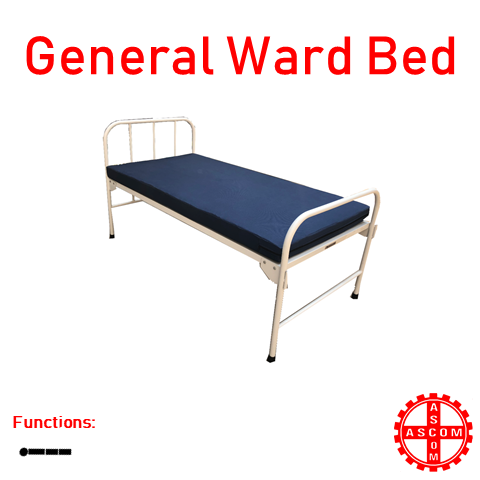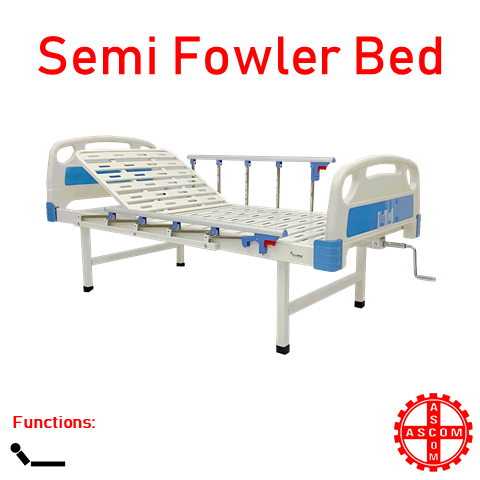Get This Report on Hospital Beds For Home Use
Get This Report on Hospital Beds For Home Use
Blog Article
Hospital Beds For Home Use for Dummies
Table of ContentsThe Only Guide for Hospital Beds For Home UseThe Main Principles Of Hospital Beds For Home Use Not known Incorrect Statements About Hospital Beds For Home Use Hospital Beds For Home Use - An OverviewThe smart Trick of Hospital Beds For Home Use That Nobody is Talking About6 Simple Techniques For Hospital Beds For Home UseOur Hospital Beds For Home Use Ideas
There are 3 major kinds of medical facility beds: handbook, semi-electric, and fully-electric. These beds make use of hand cranks to adjust the bed's height and increase and reduce the head and the foot.
Semi-electric beds have an electrical motor to elevate and decrease the head and foot sections of the bed (hospital beds for home use). Full-electric beds have an electrical motor that can increase the head and foot sections of the bed as well as the entire elevation and positioning of the bed.
The Ultimate Guide To Hospital Beds For Home Use
Some versions can likewise relocate into even more settings, such as the Trendelenburg (tilt) setting. There are several types of health center beds, each designed to satisfy certain person requirements. Below are some typical kinds: This is one of the most typical kind of medical facility bed, made for general clinical use. It has a guidebook or electrically flexible headrest, foot rest, and height.
Lower to the ground than a typical bed. This type of bed is developed for larger patients, with a larger structure and greater weight capacity than a common bed.
This type of bed is made for critically sick clients that call for open monitoring and specialized clinical tools such as ventilators and infusion pumps. This kind of bed is made for use throughout labor and delivery, with adjustable settings and attributes to support the mother and child throughout the birth process.
The Definitive Guide for Hospital Beds For Home Use
Multiple function and the devices do broadening traction to different parts of the vertebra and the extremities without moving the body. These are just a few instances of the kinds of healthcare facility beds offered. The certain sort of bed made use of will depend on the person's problem, medical needs, and various other elements.
Here is the important things you need to recognize. A one-function healthcare facility bed is a medical bed that permits a client to relocate only the head or foot area up or down. A 2 function hospital bed typically describes a kind of clinical bed that has 2 adjustable features to help people in hospitals or treatment facilities.

What Does Hospital Beds For Home Use Mean?
A 7-function ICU bed is a kind of clinical bed that provides several adjustable functions to support critically sick individuals in an extensive treatment system (ICU) (hospital beds for home use). The 7 features typically include: Backrest adjustment: The back-rest can be adapted to numerous angles to aid the patient stay up or rest pleasantly
Elevation change: The bed can be elevated or decreased to make it less complicated for people to enter and out of bed, and for caretakers to give treatment. Trendelenburg setting: The entire bed can be tilted to promote blood circulation and blood circulation in the body. Reverse Trendelenburg placement: The bed can likewise be tilted in the opposite instructions to advertise blood flow and circulation in the upper body.
While more economical than electric versions, these beds need exertion for adjustments. The major advantages of manual beds are their price and dependability, as they don't rely upon electrical energy. However, the demand for hand-operated effort can be a constraint in circumstances where quick modifications are required or where caretakers face physical obstacles.
Hospital Beds For Home Use Fundamentals Explained
Semi-electric health center beds supply an equilibrium of guidebook and electrical controls. These beds provide a perfect middle ground between manual and fully electric options, offering convenience of usage without the complete expense of electric versions.
Semi-electric beds are fit for people who need moderate modifications to the head and foot sections however can handle without frequent height changes. This makes them a cost-effective solution for those looking for convenience and benefit without the need for constant repositioning. Totally electrical healthcare facility beds feature electric controls for smooth modifications to the height, head, and foot areas.
Specialty hospital beds, such as ICU beds, lasting care beds, and bariatric beds, are carefully designed to resolve certain medical demands. These beds provide tailored look after diverse person teams, enhancing both outcomes and convenience. In the complying with areas, we will discover the primary kinds of specialty hospital beds, detailing their particular advantages and applications.
With years of experience in manufacturing electrical linear actuators - hospital beds for home use and close partnership with the healthcare market, TiMOTION is well-positioned to provide trusted health care solutions. Our vertically incorporated company handles every step of the manufacturing procedure, from layout to actuator assembly, guaranteeing we deliver outstanding value and tailored solutions customized to your details requirements
4 Simple Techniques For Hospital Beds For Home Use

To find out more concerning integrating these innovations right into your products, call us today. More reading:.
Information is sourced from the Medicare Cost Record.

See This Report about Hospital Beds For Home Use
A hospital bed is a bed designed especially for clinical purposes. It is not just an area for individuals to rest, yet additionally a platform for medical procedures. Unlike normal home beds, healthcare facility beds generally have flexible functions, which can facilitate clinical staff to make numerous modifications according to the needs of people, such as altering the elevation, inclination, and assistance angle of the back and legs of the bed.
Report this page